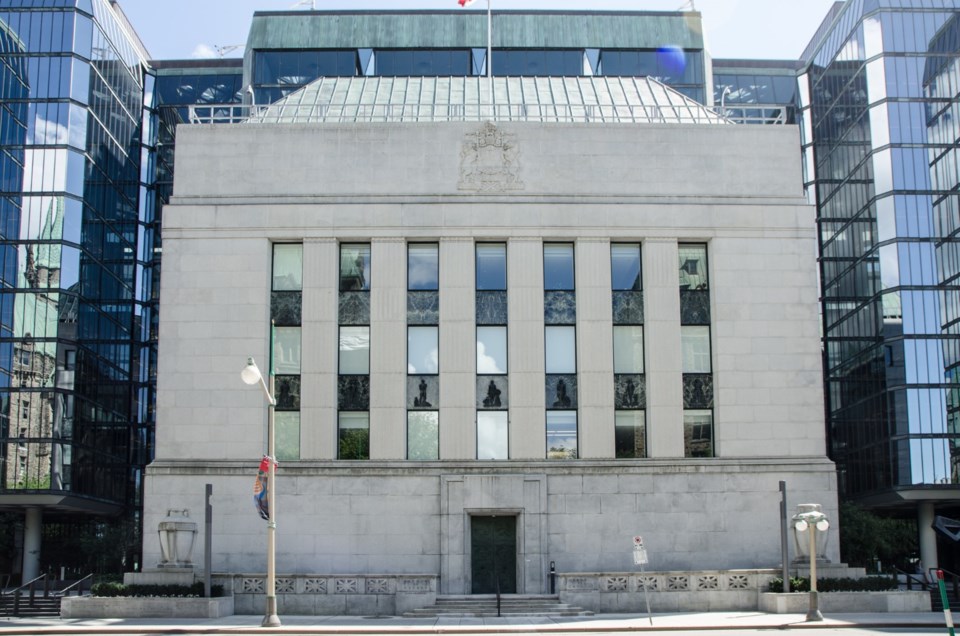An open letter to the Bank of Canada:
Greetings. I’m sure by now, after ten years of my ravings in these illustrious pages, you are certain that we can never be more than the unfriendliest of enemies. Between the issues of usury and fealty, the former an unpardonable sin, the latter so disparate between us as to beg whether we exist in the same dimensions of time and space, there’s to be no reconciliation here.
And yet, for the briefest of moments, we find each other on the same side of an issue, though, as always, you money managers are late to the game. For years, I have advocated that our central interest rate ought never to dip below five percent: in fact, that should be welded into our constitution. It would appear that my insight has finally breached the sad vaults containing your minds, and so the rates have indeed risen to something above a predatory level of interest.
Of course, the squawking can be heard from every quarter; I’ll also be subjected to it. But the briefest glance at a Canada specific graph on housing costs versus income since 2008 (let alone the 1990s) ought to shut up anyone who claims they have working brains. It baffles the mind how the second largest country on Earth with infinite resources and plenty of skilled trades people could be in a housing crisis.
The answer: decades of cheap loans = exponential inflation.
That’s banking and monetary policy 101, even in an infernal compound interest world. If we must dance with the devil’s paper currency, the least we could do is keep a tight grip on the causes of inflation known since the days of gold and silver coins. Borrowing money must sting, even hurt severely, in order to ensure people do not hitch their wagons to notions of getting rich quick, replacing value and productivity with empty speculation, which always ends in a big crash.
Again, the word salad shills are welcome to defend your recent cheap rates - I’m sure you will smile upon them while you foreclose on their houses at renewal time. But I belong to the generation that came of age during the Financial Crisis and the Great Recession; at the ten-year mark, just before Covid, for those of us have-nots, it seemed for a brief moment that it all might improve ever so slightly. Then the pandemic ripped that facade to shreds as prices skyrocketed.
I remember when a $400K house meant it belonged to a doctor, lawyer, etc. Now Prince George is full of them, even though none of us truly believe that evaluation. This is entirely your doing, you greedy, pathetic excuses for monetary experts. Cheap loans begat insane borrowing, which begat insane bidding and prices, which has begat an unimaginable bubble. In recent days it has just begun to falter, causing much wailing and gnashing of teeth. Too bad, so sad, I say.
There is no easy way out of this mess, and cutting rates will likely exacerbate the issue; like kicking a bad habit or a severe addiction, turning off the cheap money, then turning it on again, only to turn it off in a year's time once more, will kill more than it will cure. Hard as it is for folks to admit, it might just be time for historical rates to prevail, and anything below five percent to be treated as nothing more than entrapment. We’ve survived rate hikes before, and we can again.
But there is also a simultaneous change in behavior that I would recommend to those subjected to the whims of your sterile bankers’ boardroom, so lacking in heart no one even has the soul to smoke a big cigar in it.
My fellow rate payers, it might just be time to live within our means and return to the old ways of stiff but simple interest, rent to own, cash payments, and doing things for ourselves, particularly when developing property. Let the underwriters finally die.
I suppose that sounds radical, but our ancestors managed to live without access to cheap credit or the casino we call the stock market. In a sense, the longer rates stay up, the more likely we are to return to sensible prices and budgets.
Never thought I’d thank a banker.
Nathan Giede is a Prince George writer



